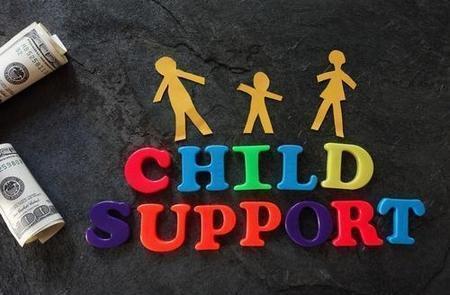Recent Blog Posts
Illinois' New Child Support Law and Modifying Your Existing Payments
 Child support payments are generally recognized by divorcing spouses as a necessary part of their shared parental responsibilities. Parties in a divorce are more likely to argue about the value of child support payments one spouse receives. Courts will consider the needs of the children and the financial status of each parent to determine an appropriate amount. However, needs and finances can change, and it sometimes is appropriate for parents to modify the child support arrangement.
Child support payments are generally recognized by divorcing spouses as a necessary part of their shared parental responsibilities. Parties in a divorce are more likely to argue about the value of child support payments one spouse receives. Courts will consider the needs of the children and the financial status of each parent to determine an appropriate amount. However, needs and finances can change, and it sometimes is appropriate for parents to modify the child support arrangement.
Determining Payments
Starting July 1, Illinois will use a new measure called income shares to determine what percentage of the children’s basic support amount each parent is responsible for. Each parent’s net income is calculated, which is the gross income subtracted by necessary living expenses and taxes. The two net incomes are combined, and the parent with the greater share of the income will proportionately pay his or her share of expenses associated with the children. Courts will also take into account whether there is a shared parenting arrangement, in which children spend at least 146 nights a year with each parent. In this situation, each parent’s child support obligation is multiplied by the percentage of time he or she is responsible for the child. If the parent with lower income has a larger share of the parental responsibility, the parent with the higher income will pay the difference between the two amounts.
How a Prenuptial Agreement Can Be Ruled Invalid
 Coming to a premarital agreement, commonly known as a prenuptial agreement, with your spouse can be a financially savvy move in case of divorce. It allows you to define several monetary and proprietary aspects of your marriage, including:
Coming to a premarital agreement, commonly known as a prenuptial agreement, with your spouse can be a financially savvy move in case of divorce. It allows you to define several monetary and proprietary aspects of your marriage, including:
- The rights to and division of marital property.
- What is considered marital property.
- The terms of spousal support payments.
- How much marital money can be used to pay off individual debt.
- The distribution of benefits from a life insurance policy or will.
The rules of prenuptial agreements in Illinois are outlined in the Illinois Uniform Premarital Agreement Act. Among the rules are several ways that a prenuptial agreement can become invalid. These safeguards are meant to protect a spouse in case of unfair practices by the other spouse.
Write It Down
It may seem obvious, but a prenuptial agreement is not valid unless it is formally written out and signed by both parties. Verbal agreements will not be enforceable in court.
Handling a Narcissist During a Divorce
 For many spouses seeking a divorce, coming to an equitable agreement outside of the courtroom is the ideal solution. It keeps the personal details of their divorce more private and generally is a less-contentious process. When dealing with a narcissistic spouse, going to court may be your only option. If you are divorcing this person because of his or her egotistical and manipulative personality, it should not be a surprise that those same traits come out during divorce negotiations. Narcissists can cause several problems during a divorce:
For many spouses seeking a divorce, coming to an equitable agreement outside of the courtroom is the ideal solution. It keeps the personal details of their divorce more private and generally is a less-contentious process. When dealing with a narcissistic spouse, going to court may be your only option. If you are divorcing this person because of his or her egotistical and manipulative personality, it should not be a surprise that those same traits come out during divorce negotiations. Narcissists can cause several problems during a divorce:
- A divorce is another way to assert their power over their spouses. They are less likely to settle on issues because they see a divorce as a competition they must win.
- They may lie or misconstrue the facts of a marriage in order to portray themselves as the victim. If they are the extroverted type, this also makes them good at presenting and selling their stories to a judge.
Who Gets Child Custody During a Same-Sex Divorce?
 With the legalization of same-sex marriage also came the need for same-sex divorce. Many aspects of divorce law are used equally in heterosexual and homosexual divorces. However, same-sex divorce is new territory, and decisions in cases often set new legal precedents.
With the legalization of same-sex marriage also came the need for same-sex divorce. Many aspects of divorce law are used equally in heterosexual and homosexual divorces. However, same-sex divorce is new territory, and decisions in cases often set new legal precedents.
Child custody (or the "allocation of parental responsibilities") is one of the trickiest parts of same-sex divorce because the process of having a child is more complicated than in a heterosexual relationship. Only one parent can claim biological rights to the child. With adopted children, the legal process of the adoption becomes important in determining parental rights. There are no laws specifically addressing same-sex divorce and custody. More general laws and court decisions are the best determiners of how a case will play out.
Biological Parent
When same-sex spouses have a child biologically, one parent is designated as being the biological parent, and the other is designated the second parent. The biological parent is either the woman in a lesbian marriage who gave birth to the child or the man in a gay marriage who provided the sperm sample for the surrogate. When spouses get divorced, the biological parent has automatic decision-making rights and parenting time. The secondary parent may also gain parenting rights, but only if he or she was legally established as a parent of the child.
Domestic Violence Victims Have Varied Legal Protections in Illinois
 Anyone who is a victim of domestic violence must take the necessary steps to protect themselves and others who are vulnerable. This may include leaving your home and calling the police to press charges. You can receive a temporary order of protection as a legal safeguard against your attacker.
Anyone who is a victim of domestic violence must take the necessary steps to protect themselves and others who are vulnerable. This may include leaving your home and calling the police to press charges. You can receive a temporary order of protection as a legal safeguard against your attacker.
However, orders of protection are just one right that domestic violence victims have in Illinois. The state has several laws and resources available that can help you financially and protect you against discrimination.
Work
After a domestic violence incident, you may need time away from work to take care of legal and personal matters. Illinois’ Victims Economic Security and Safety Act allows the victims of domestic or sexual assault to take unpaid leave from work without punishment, as long as the employer has at least 15 employees:
- For employers with 15 to 49 employees, the victim can take eight weeks off during a 12-month period.
Continuing Your Health Insurance After Divorce
 Health insurance is one of the most important and costly services often shared between spouses. When you get divorced, you will be responsible for procuring your own health insurance if you were on your former spouse’s plan. If your employer allows it, you may be able to immediately sign up with your own employee health plan. But what if you do not have that option? There are a couple of insurance choices you should consider.
Health insurance is one of the most important and costly services often shared between spouses. When you get divorced, you will be responsible for procuring your own health insurance if you were on your former spouse’s plan. If your employer allows it, you may be able to immediately sign up with your own employee health plan. But what if you do not have that option? There are a couple of insurance choices you should consider.
Insurance Continuation
Normally, continuing coverage on your previous health insurance plan is available through COBRA insurance. Premiums under this plan can cost up to 102 percent of the group rate.
However, former spouses and their dependents in Illinois without insurance have a cheaper option of continuing their previous coverage, thanks to the Illinois Spousal Continuation Law. Under the provisions of the law, you can continue on your spouse’s health insurance for up to two years if you are younger than 55 or until you qualify for Medicare if you are 55 or older. In order to qualify for continuation:
Deciding Whether Annulment Is Your Best Choice
 While divorce is the most common way for married couples to legally separate, couples also have the option to annul their marriage. Annulment dissolves the marriage on the grounds that it is invalid, which can mean the marriage retroactively never existed. In Illinois, there are four categories that qualify for annulment:
While divorce is the most common way for married couples to legally separate, couples also have the option to annul their marriage. Annulment dissolves the marriage on the grounds that it is invalid, which can mean the marriage retroactively never existed. In Illinois, there are four categories that qualify for annulment:
- If the marriage is illegal, such as incest, bigamy or being forced to marry under duress
- If one party was mentally incapable of consenting to the marriage
- If one party was unaware that the other party was incapable of having sexual intercourse
- If one of the parties is younger than 18 and did not receive parental consent to marry
Even if you qualify for annulment, you should consider whether an annulment is your best option. There are advantages and disadvantages to getting an annulment instead of a divorce:
How To Communicate With Your Toddler About Divorce
 Getting divorced is an emotionally trying time for parents and their children, but being the divorced parents of a toddler brings unique challenges. While older children may feel guilty over the divorce, toddlers are at a developmental stage when they are too young to understand what a divorce is. However, they do know that their world has been disrupted because their parents are no longer together.
Getting divorced is an emotionally trying time for parents and their children, but being the divorced parents of a toddler brings unique challenges. While older children may feel guilty over the divorce, toddlers are at a developmental stage when they are too young to understand what a divorce is. However, they do know that their world has been disrupted because their parents are no longer together.
Because toddlers do not have the communication skills to explain their feelings, they are more likely to have behavioral reactions, including:
- Tantrums
- Sleep trouble
- Increased separation anxiety
- Behavioral regression, such as thumb sucking
While these behaviors can lead to developmental setbacks, research has shown toddlers of divorced parents can still develop normally if their parents properly communicate with them.
Divorce Asset Inventory: Three Ways You Can Take Stock of Your Belongings
 Among the many concerns spouses have throughout the divorce process, it is no surprise that a significant anxiety that often plagues those undergoing a split is worry over finances. Depending on your income, earning potential, employment situation, and the belongings you and your spouse have acquired over the course of your marriage, that worry may be severely compounded when children are added to the equation or when there is a drastic difference in your debt to income ratio.
Among the many concerns spouses have throughout the divorce process, it is no surprise that a significant anxiety that often plagues those undergoing a split is worry over finances. Depending on your income, earning potential, employment situation, and the belongings you and your spouse have acquired over the course of your marriage, that worry may be severely compounded when children are added to the equation or when there is a drastic difference in your debt to income ratio.
Plan Ahead When Possible
Whatever your financial circumstances as you work through the end of your marriage, you will need to come to grips with your situation sooner, rather than later. It is imperative to obtain a snapshot of your finances in order to work with your attorney, financial planner, and accountant to plan for and create financial security for yourself following the divorce. Doing so requires a full inventory sweep of your financial obligations and assets.
Signs of the Times: Four Indicators That Point to Possible Divorce
 The road to divorce is often a subtle one, sneaking up on both parties until the undeniable dysfunction plaguing their relationship is glaring and unavoidable. Some marriages unravel over a very long period of time, while others deteriorate quickly, within the first few years of marriage.
The road to divorce is often a subtle one, sneaking up on both parties until the undeniable dysfunction plaguing their relationship is glaring and unavoidable. Some marriages unravel over a very long period of time, while others deteriorate quickly, within the first few years of marriage.
Regardless of how long it takes for a marriage to fall apart, the signs of an impending split are usually present early on and often continue to exhibit themselves throughout the course of the marriage, although many couples are unable to spot them at first. It is not uncommon for spouses to be so wrapped up in raising their children or building their careers that they miss the red flags signaling trouble in their marriage.
Signs of Marriage Trouble
Psychology experts illuminate a common theme that tends to weave divorce red flags together: A breakdown in communication. Whether the couple ceases physical intimacy, stops talking about their day and what is happening in their day-to-day lives, or ends an argument still angry, one of the biggest indicators that your marriage is in trouble is an overall lack of communication.











